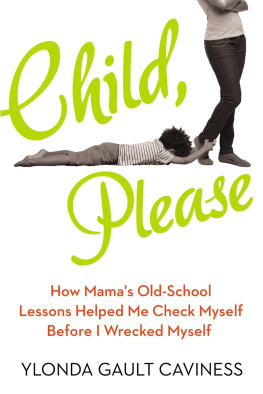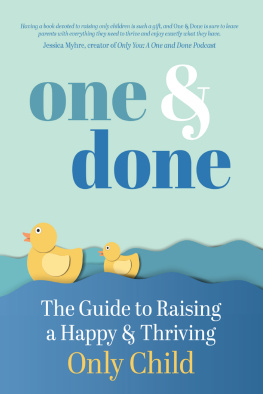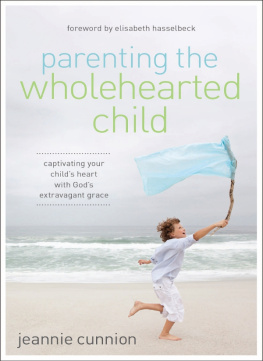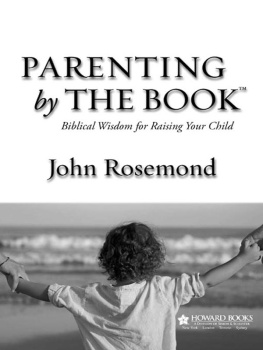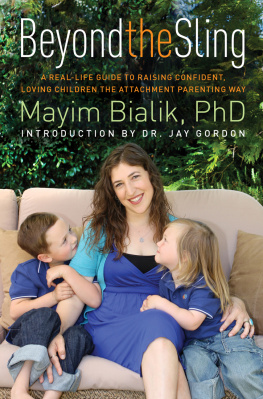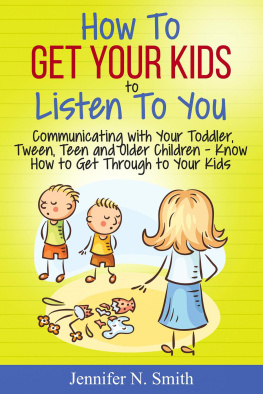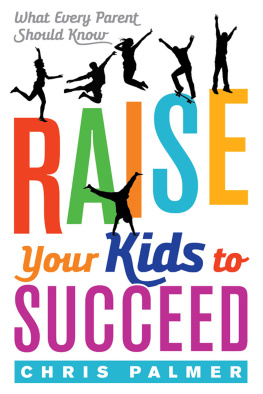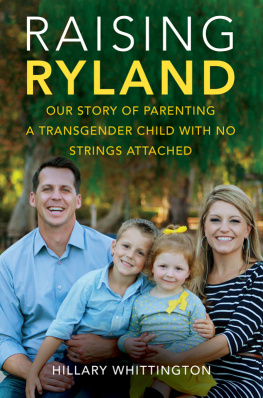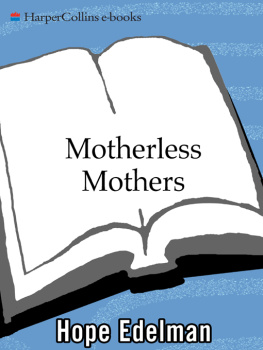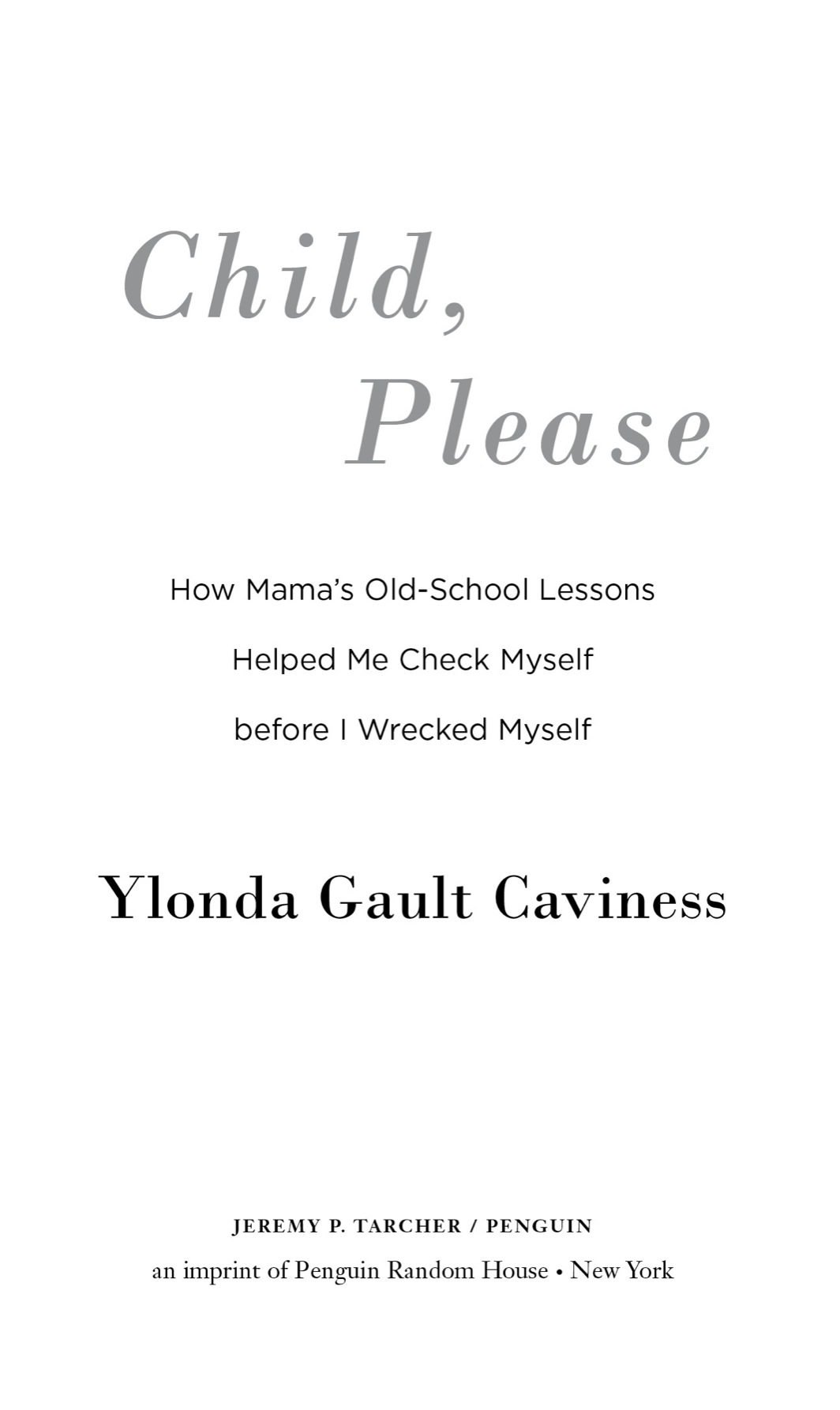J EREMY P. T ARCHER/ P ENGUIN
Penguin supports copyright. Copyright fuels creativity, encourages diverse voices, promotes free speech, and creates a vibrant culture. Thank you for buying an authorized edition of this book and for complying with copyright laws by not reproducing, scanning, or distributing any part of it in any form without permission. You are supporting writers and allowing Penguin to continue to publish books for every reader.
Most Tarcher/Penguin books are available at special quantity discounts for bulk purchase for sales promotions, premiums, fund-raising, and educational needs. Special books or book excerpts also can be created to fit specific needs. For details, write: SpecialMarkets@penguinrandomhouse.com.
Some names and identifying characteristics have been changed to protect the privacy of the individuals involved.
INTRODUCTION
Child, Please
O ften the Look was not particularly stern. Nor scary. In fact, Mamas Look was eerily subtle on its surface. The pain danced on the edgesdangerously jagged, sharp points skirting the axis of her wan expression. It was clear, even to a young child, that just beyond the thin layer of restraint lay a machete-like stab of pure, unadulterated, extra-strength INDIFFERENCE.
The Look rode shotgun with an audible sighweary and deep. A pointed and distinctive breath dripping heavily with enough annoyance and discontent to let you know Mama was so, so sick and tired of your very existence in that moment. On the exhale, an assiduous listenerlike myselfmight strain to make out muffled syllables cloaked under exasperated huffs. That was when her simmering aggravation was given voiceever so faintly. Soft as a whisper, but laced with aversion, the words escaped her pursed lips: Child, please...
In other words, Go someplace and sit down. Child, please said, Get out of my face. It meant, You dont even warrant the energy it would take to go off on your behind. For Mama, Child, please was also shorthand for Im going to smoke me a cigarette and I want nothing to do with your foolishness. At that, shed softly turn on her heel for a cutting exit. Pure theater. Had we owned velvet curtains theyd have closed dramatically then and there.
We did not.
For the next ten minutes or so I felt like a bothersome speck of lint on her black bell-bottom pants. Certainly there is an expert out there right now decrying the near-abusive blow to my self-esteem. But dont give me that noise about kids confidence. Im not trying to hear it. In most households these days, the children could stand to be knocked down a notch or two. Mamas Child, please packed a powerful and dramatic lesson. She was tone deaf, but her message held poetic rhythms, like the Queen of Soul chirping: R-E-S-P-E-C-T, find out what it meansto me! Her Child, please was all about the boundaries Mama expected us kids to recognize. In an instantbefore she uttered a sound, or even heaved in exasperationI knew Id crossed an indelible line.
My own kids? Hmmm... they sort of get the whole boundary thing, but its not quite as reflexive as Id like. For example, they sometimes butt into grown folks conversationas modern children are wont to do. And then have the nerve to give me a look of puppy-dog confusion when I call them on it. I am forced to remind them: Dude, I dared not even look in my mothers direction when she was talking to her friends; your head is jogging back and forth like youre checking a match at Arthur Ashe Stadium. Honestly, they are better than most. Usually they try to control themselves, but the fact is, kids today harbor the illusion that they are our equals. They fancy themselves smarter, shorter adultsless keys and credit cards.
Back in the day, mothers didnt suffer the mess we put up with now. Of course, the culture as a whole was far more stringent. No one I knew was unfamiliar with the sting of a belt across their backside. Beyond that, though, we didnt take our parents attentionor their affectionfor granted.
I, for one, wanted Mamas approval. And it was clearly a prize not easily won. Mama loved us. Of that my siblings and I had no doubt. But we also knew she wasnt necessarily in love with usat least not just because.
There was no cheering our descent down the slide. She didnt hang with clusters of moms at the playground like infatuated groupie spectators squealing from the stands. Nor did she gush over our every stick figure drawing and plaster them all over the house. Like everyone elses mother, Mama was happy and sufficiently enthused when we won a spelling bee or some such achievement, but she wasnt hanging on our words or asking, You okay? all the time. Im pretty sure we took up no more of her energy than was necessary. Without saying so, she let us know we kids could sometimes rock her world, but we couldnt be her world.
Thats why Mama observes my generation of mothers with befuddled amusement. She concedes, of course, that times have changed: We mothers have more complicated lives and our kids face far more dangers. Still, the self-flagellating, all-consuming obsession to raise a child in a fashion akin to a recipe-perfect souffl is mind-blowing to her. And its no wonder. Mothering as an extreme sport is a world far removed from her own sensibilities. When I stop to think about how my friends and I live, here are just some of the ways we differ from old-school motherhood:
- Mama didnt run out of the houseas I often dowearing ill-fitting clothes and no lipstick.
- She didnt fret about how well I did in school, how easily I made friends, or how good I was in music lessons. (Wait... Oh, thats right. I didnt have music lessons.)
- Mama never hired a babysitter.
- She didnt know of, consider, or care about child-friendly explanations for lifes difficulties. Well. Your uncle Dave decided to blow his brains out sufficed.
- She never let our displeasure get in the way of her good time, dancing the Funky Chicken till her legs tired, oblivious to our tears from embarrassment.
- Mama didnt pencil in girlfriend time; she relished hours-long, impromptu chat fests whenever Aunt San or Sugar decided to drop by the house.
- She threw parties at the drop of a hat and took full advantage of our free labor, putting us to work making the deviled eggs and cream cheese celery sticks. (We loved every minuteespecially those times Jimmy Mo got drunk.)
- She seldom took our side in a misunderstanding or report of misconduct. If a neighbor, a teacher, or any other grown-up accused us of wrongdoing, we were presumed guilty until proven innocent.
- Mama never played shrink. Her lips never formed words like Tell me about it or How did that make you feel?
- Mama wasnt studying us.
As kids we accepted this reality. It was neither harsh nor troubling; rather, it seemed the natural order of things. As a child you knew you didnt matter all that much in the grown-up world. If you lay bleeding, someone would probably attend to you. And if you acted out, you definitely commanded notice. But, by and large, grown-ups were not studying kids. I dont mean the academic studying that leads to a weird analysis, like SpongeBob linked to attention deficits or Daycare increases aggression in kids. In southern black parlance,

